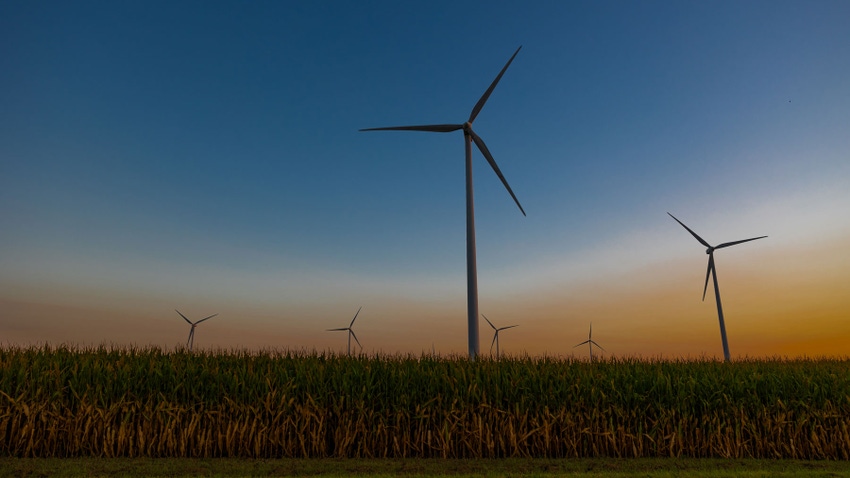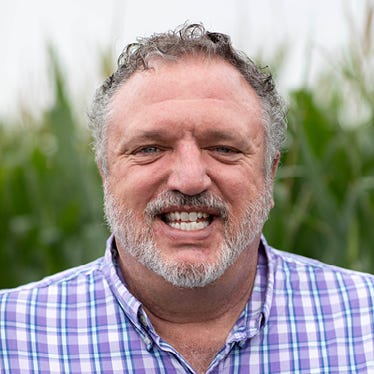September 11, 2023

Illinois stands at the forefront of developing renewable energy. Almost every day, new solar panels and wind towers seem to spring up wherever you look. Under the state’s ambitious Renewable Portfolio Standard, renewable energy is poised to surge, fueled by state legislative initiatives preventing counties from obstructing wind and solar development.
In this ever-evolving landscape of agriculture, Illinois farmland owners find themselves at the crossroads of tradition and innovation. Renewable energy and the allure of solar and wind leases are sweeping across the Illinois prairie like a derecho. But with every gust of opportunity comes a whirlwind of questions.
How do we navigate this new terrain?
I’ve recently spent time talking to several folks with expertise and experience in energy leases, including Bloomington, Ill., attorney Tom Jennings; Moweaqua, Ill.-based Digs Associates co-founder Quint Shambaugh; and Illinois Farm Bureau’s Bill Bodine.
Here is what I learned:
Avoid hasty decisions. Before entering into any lease agreement, ensure that you’re working with a reputable company. Some companies accumulate acres without the genuine intent of developing a project. By partnering with a trustworthy company, you ensure that your development rights aren’t just locked up without any tangible benefit.
Start by doing your own due diligence. For example, on wind leases, start by reviewing the county’s setback restrictions for development on the property. There’s no point in negotiating if there’s little room for development.
At the end of the day, a lease is not just a business agreement; it’s entrusting a part of your land and legacy to another entity.
Engage your neighbors. If a company has approached you with a letter or proposal, they’ve likely approached your neighbors, as well. Engaging in proactive conversations can not only foster a sense of community, but also unearth shared concerns or insights that you can collaborate on and address together. Such discussions ensure that as the community transitions, it does so with unity and mutual understanding.
Consider collaborative negotiations. Landowners can benefit from joining forces. By negotiating shared agreements for renewable energy projects, communities can secure better terms and conditions.
Talk to experts. Navigating the intricacies of renewable energy leases requires specialized knowledge. While there are many resources available, the undeniable value of legal counsel cannot be overstated. Collaborate with adept attorneys who can offer tailored legal guidance, ensuring leases and agreements serve your interests.
An advantage of working with experienced attorneys, farm managers and advisory services is their exposure to a myriad of contracts from diverse companies, granting them a panoramic view of the industry. Over time, these professionals often cultivate relationships with various renewable energy firms, allowing them to compare lease terms and ensure specific stipulations align with industry standards.
Beyond attorneys, consider the advice of experts on current and future infrastructure needs. Reputable developers typically bear the costs of expert advice during lease negotiations, but this is often contingent upon the execution of a lease.
Anticipate the future. Be very well-acquainted with the details of easements, especially when they intersect with infrastructure projects. Landowners today often buck against the challenges posed by old easements that granted companies broad permissions. Modern landowners need to ensure their easements are specific and future-proof.
Anticipate potential capital improvements and how they might intersect with renewable infrastructures. Consider both current and prospective infrastructure for the land, encompassing elements like drainage tiles, earthmoving and, in some places, even irrigation. Where a transmission line is buried becomes crucial, as their location across potential waterways or drainage ditches could hinder future modifications. As you strategically negotiate setbacks, think about where you may want to locate future grain storage, especially adjacent to roads.
While the current state of the farm is undeniably vital, if you can envision potential future capital improvements, you’ll ensure that today’s decisions don’t inadvertently limit tomorrow’s possibilities. This perspective becomes especially relevant when considering the volatility of commodity prices, which could shift the viability of certain projects.
Ensure proper remediation and investigation protocols. Your lease absolutely has to specify this.
An Agricultural Impact Mitigation Agreement (AIMA) is a document that is signed between a utility company and the Illinois Department of Agriculture to address and anticipate issues related to utility project construction on Illinois farmland. The AIMA outlines the construction and deconstruction process, as well as the steps that will be taken to minimize property damage and crop and livestock losses.
Landowners who have signed an AIMA can contact IDOA if they have any unresolved concerns about the construction of a utility project on their land. IDOA will act as a mediator between the landowner and the utility company to try to resolve the issue.
Landowners may want to consider bringing in experts during construction as well. Advisory services can oversee the installation on your behalf and provide quality assurance and control that exceeds the old “hit it and fix it” standard that has caused problems in the past.
Further, negotiate the right to enter and inspect the property on a regular basis. It’s only by having boots on the ground that a landowner can catch problems before they escalate.
As renewable energy and its quest for leases roll across Illinois, it’s imperative for landowners to be well-informed, proactive and collaborative, to ensure that the legacy of their land is preserved and enhanced for generations to come.
Lauher is a farm manager with First Mid Ag Services and is a member of the Illinois Society of Professional Farm Managers and Rural Appraisers. Email questions to [email protected].
About the Author(s)
You May Also Like






